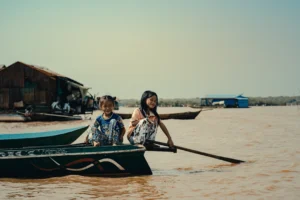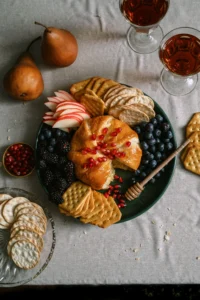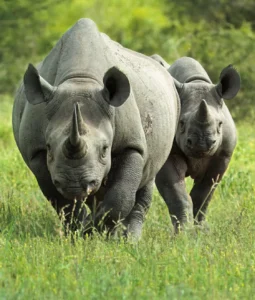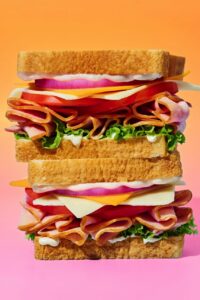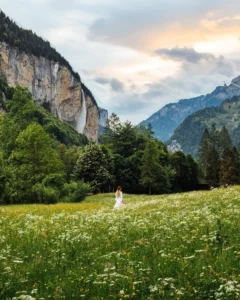
My
Huibo Houphotography started to take a serious turn in 2006. That was almost seven years or eight years after I started.
You can also listen to this episode on iTunes, Pocket Casts, Spotify, Castbox, and Google Podcasts.

In this episode, you’ll learn about the art of landscape
Huibo has a very interesting story. After shooting for a few years, she had to take a break from
We talk about:
- How the break changed Huibo’s priorities as a photographer
- Editing tips for black & white photographers
- How to overcome creative block as a busy person
& much more!
This was such a fun and eye-opening interview. I highly recommend listening to it! Huibo’s story is inspiring and relatable. I hope that our conversation will inspire you to connect with other artists, learn new things, and have fun.
Here is a preview of our conversation with Huibo Hou.

Q: Do you have any advice for photographers who are stuck in a rut?
Huibo Hou: When that happens, I think, “This is a time to slow down and reflect. This is a time to learn and get inspired by others.” I’m still doing landscape
Still, frustrations and trial-and-error can happen a lot to me. I personally strive for consistency. Sometimes, I feel I can’t reproduce the level of work that I produced previously, so I’m quite frustrated about it. When I’ve tried to intentionally work on something – either a single image or a project – but I just couldn’t achieve what I set out to do, I definitely felt a lot of frustration. I felt that I wasn’t progressing and wasn’t being productive.
When this happens, my approaches are to accept this as a natural part of the art-making process. It’s bound to happen, in my opinion. Once I accept this, it’s time to find inspiration from my favourite photographers, blogs, websites, and articles. Or this is a time to finally sit down and read the books that I’ve always wanted to read but never seem to find time to read. They don’t have to be
If I have the money, time, or opportunity, this is maybe the time to take a workshop from my favourite photographers. I don’t attend workshops often, but the couple of workshops I’ve attended in the past all had a very positive and even profound impact on my

Based on my limited experience, I find that with acceptance and patience, good things will eventually happen. You just need to be patient. I always tell myself, “You just need to be patient” and I will eventually have those moments when new ideas or new revelations come to mind. I suddenly realise, “Yes, I can try this. There are so many things I can try.” I’d feel very excited about going back to work and trying them. This is basically what I feel when I run into those low periods of time.
You need to be patient, accept it. Keep reading, keep learning, keep practising, and good things will eventually happen.
I’ve also learned slowly from the past years that chasing perfection isn’t necessarily a very good thing. I chase perfection, to be honest with you. I realised that chasing perfection usually comes with putting a lot of pressure on myself and can lead to a lot of frustration and feeling unproductive. This may not be a very good thing for art-making.

Q: Did you approach photography differently after going through so many personal changes in your life?
Huibo Hou: Getting back to it after so long was a bit hard. Technically, I found that I had forgotten most things both in the field and also in my post processing techniques. It was pretty awkward for a while. Soon, I found out that as long as I kept doing it, it would become fluent again. I just encouraged myself and said, “Hey, just just keep doing it, you will come back!” And it came back.
Also, things start to take slightly different turns. I’ve been able to spend a little bit more time in
But now, it has started shifting towards using it as more of an art form to show how I would observe and interpret the landscape and nature around me. In other words, previously, I mainly just wanted to achieve pretty pictures, aesthetically beautiful pictures. Now, I still want that, but I care more about whether my images have creativity or not, whether my images have a personal touch or not, whether they say something about me specifically or not, or whether they show how I would observe our world.
Definitely, I saw a change in my approach. I can’t explain why. Maybe that just came naturally. Maybe it actually has something to do with those quiet, non-active years when I didn’t really pursue
What really helped me to sustain interest and passion in
It was also during this period of time that I discovered some of my favourite photographers, such as Guy Tal. He became a huge influence when I eventually came back to

Q: What camera gear do you like to use?
Huibo Hou: Ever since I started back in the late 90s, my first camera was a Canon, a little film camera. I went through generations of Canon digital cameras after that. I’m currently using the Canon 5D Mark IV. I still like it a lot and I’ve been using it for quite a few years.
In terms of lenses, I always have three of my favourite lenses in the bag: my 15-35mm wide angle, my 100-400mm telephoto, and my 100mm macro lens. I always have these three in my bag. In the near future, I’m planning to move to Canon’s mirrorless system. I look forward to it. I’ve heard a lot of good things about it. I think it would improve my efficiency in the field.
Overall, I like to keep it simple. I don’t like switching camera gears often. I don’t like fussing with it in the field.
Links
Join Our Photography Community!




